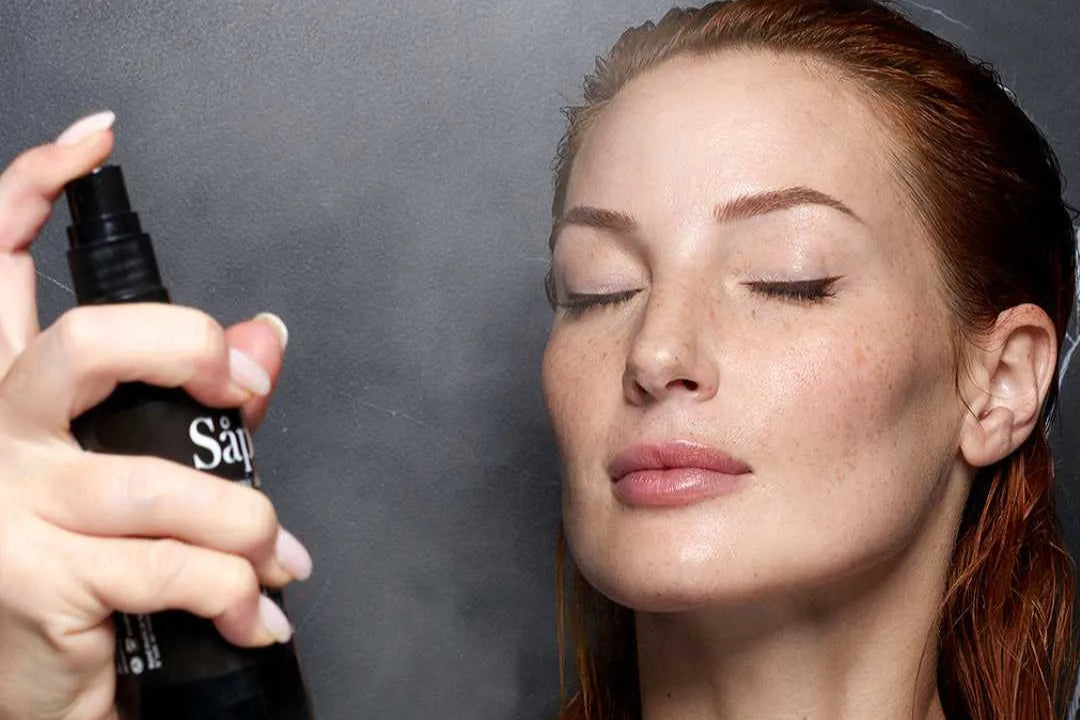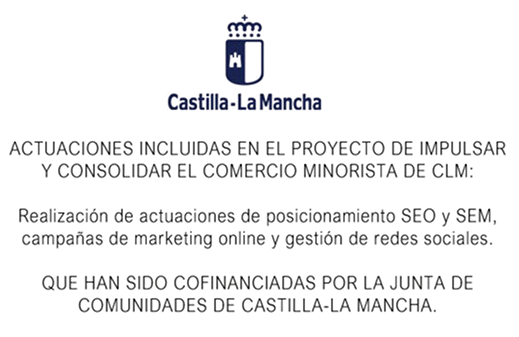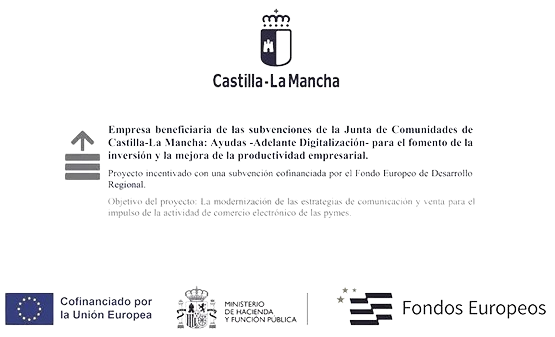FREQUENTLY ASKED QUESTIONS
Yes, all our products are 100% natural and contain over 90% organic ingredients. Not only are they formulated with the highest quality ingredients, but they are also handcrafted in small batches, ensuring the freshness and efficacy of each of our active ingredients. Additionally, all our cosmetics are certified according to the BioVidaSana standard and inspected by Bio.inspecta, which rigorously endorses our commitment to traceability and the integrity of our processes.
In addition, our products are cruelty-free and vegan, which guarantees that they are not tested on animals and are formulated without ingredients of animal origin. We are also committed to caring for the environment, using recyclable and toxin-free packaging. By choosing our brand, you are choosing natural cosmetics that care for your skin and respect the planet.
Our natural cosmetics have between 90% and 100% certified organic ingredients, unlike other seals (EcoCert, Bdih, Natrue...) the BioVidaSana standard requires that our products contain a minimum of 90% organic ingredients to be certified in Category I. All our products are certified in Category I of the standard, with the recognition of the ECOPLUS Category.
Natural cosmetics are those that contain primarily natural ingredients , that is, those obtained directly from nature, or processed but of natural origin. Therefore, natural cosmetics contain conventional ingredients, meaning they don't necessarily protect the environment . They also almost always contain refined ingredients, so they have lost many vitamins and antioxidants.
Phytocosmetics is the branch of natural cosmetics that uses exclusively plant-based ingredients, that is, those obtained directly from plants or minimally processed to preserve their properties. Therefore, although they focus on plant-based active ingredients, phytocosmetics can include ingredients from conventional crops, which does not necessarily guarantee a positive environmental impact.
In addition, refining processes can sometimes reduce the natural concentration of vitamins, antioxidants, and other essential nutrients present in the plant.
Organic, ecological, or bio cosmetics refer to those that contain primarily ingredients from organic farming, generally with a minimum of 80% organic ingredients . These terms are often used interchangeably and essentially mean the same thing.
Organic ingredients are grown without pesticides or synthetic fertilizers , which not only protects the environment but also preserves their natural properties. Furthermore, by obtaining, for example, through first cold-pressed processes, these ingredients maintain a high level of vitamins, antioxidants, and other essential nutrients. This translates into more effective products for improving skin health and combating premature aging caused by factors such as the sun, pollution, free radicals, or stress.
No, they're not the same. There's a lot of confusion surrounding these terms, but they can be clearly differentiated:
- Natural Cosmetics: Made from natural ingredients and excludes synthetic compounds. This category includes phytocosmetics , which exclusively use plant-based active ingredients (extracts, essential oils, hydrosols, etc.) without necessarily guaranteeing that they are of organic origin.
- Organic, Ecological, or Bio Cosmetics (Biocosmetics): These are natural cosmetics that also have certifications guaranteeing that a high percentage (generally between 90% and 100%) of their ingredients come from organic farming. In other words, biocosmetics are a subcategory of natural cosmetics that undergo rigorous controls to ensure traceability, sustainability, and the absence of toxic substances.
- Certified Cosmetics: Refers to products that, being natural, may or may not contain organic ingredients, but in any case must be free of synthetic ingredients, endocrine disruptors, parabens, phthalates, paraffins, silicones, among other components harmful to health and the environment.
In short, all certified organic cosmetics (biocosmetics) are natural, but not all natural cosmetics are organic. While phytocosmetics focus on the use of plant-based active ingredients, biocosmetics go further by certifying that these ingredients come from organic farming.
All certified organic cosmetics are natural, but not all natural cosmetics are organic.
The main difference between natural and organic cosmetics is the percentage of organic ingredients in the product. Let's first look at the differences between the ingredients.
- Natural Ingredients: They come from nature, but are usually refined, losing many valuable vitamins and antioxidants. Natural ingredients have been produced with pesticides. How so? With pesticides? Yes, all certification bodies allow natural ingredients from conventional (not organic) agriculture. Furthermore, in many cases, these ingredients will be refined, subjected to high temperatures and organic solvents, so many of their vitamins and antioxidant power will be lost during the process. That's why it's important that they be organic.
- Organic Ingredient: It comes from organic farming, meaning it has been grown without pesticides. It also contains unrefined, first-time cold-pressed ingredients, so they retain their vitamins and antioxidants intact, which is what the skin needs.
It's increasingly important to use cosmetics that care for your health, but also for the environment, so we should all use organic cosmetics.
Yes, the sector is experiencing solid growth. Various reports from reputable sources indicate that, in some markets and segments, growth rates may exceed 10% annually. For example, studies by consulting firms such as Grand View Research and Financial Food have projected that certain niches in the organic cosmetics sector will grow between 8% and 10% annually, while other regional markets have seen even greater increases.
Natural cosmetics are part of a major shift in our global lifestyles . We citizens are increasingly aware of the need to take care of our planet and our own bodies.
Consumers are more conscious and respectful: There are many reasons to choose natural and organic products. These include consumer awareness of animal welfare, respect for nature, and caring for our own health.
You don't have to be a genius to know the difference between healthy, nutrient-dense food and junk food, but what about cosmetics?
Ten years ago, most people didn't know about parabens (which have been linked to breast cancer), toluene (a toxic solvent), or oxybenzone (a chemical that can disrupt thyroid function). However, now, people are aware that all the synthetic and chemical additives we find in most cosmetic products aren't beneficial to the body. They can have long-lasting negative effects on our health.
These are some of the reasons why we choose natural and organic cosmetics:
- Environmentally friendly: Natural cosmetics are not only good and respectful of our bodies, but they are also environmentally friendly .
- Full of Nutrients: Our skin is our body's first line of defense . It not only protects us from the cold, heat, wasps (which are the worst ), or bacteria, but also from toxic agents. That's why it's important to choose the products we use carefully for skin care and cleansing.
- It has anti-aging properties: It penetrates the deep layers, eliminates free radicals, is an antioxidant, and protects your skin from premature aging by improving the production of collagen and elastin.
It is Cruelty Free: It takes into account animal respect, it is not tested on animals, and in the case of Saper, being Vegan , we do not use any ingredients derived from animals.
Nowadays, it's not difficult to find organic or natural products. Supermarkets offer a wide variety of organic foods. It's also becoming increasingly common to find clothing made with natural fibers.
And in cosmetics, it's easy to label "natural" any product. Technically, there's no single definition for natural cosmetics. Any manufacturer can label their cosmetics "natural." This makes finding authentic, high-quality natural cosmetic brands more complicated than it might seem at first glance.
How can we tell which products are natural and which aren't? Which cosmetic brands are truly natural? And which are organic?
1. Go to the brand's website:
If we want to know the composition of a particular brand's cosmetics, all we have to do is visit their website and do a little research. Take a look at the homepage and see if they have an official Natural certification. The percentage of organic ingredients, in addition to increasing quality, is important for improving the planet's environmental sustainability.
If it's not well advertised on their website, you can't see an official seal, and each product doesn't list all the ingredients (INCI listing), you're unlikely to be dealing with natural products.
Since its inception, Såper has focused on environmental protection, health, and respect for biodiversity.
2. Know the ingredients in natural cosmetic brands:
Sometimes it's quite difficult to read and understand the ingredients in a cosmetic product if you don't have a biology or science degree. But don't worry, it's not necessary to memorize the nomenclature of these products' ingredients or carry a specialized book on the subject to verify their meaning. But we should know the most important ones and pay attention to the rest.
This way, over time, it will be easier for us to understand the ingredients: what should and shouldn't be in your cosmetic products.
As a curiosity, the ingredients are listed in order from highest to lowest quantity on the label, so the first ones on the list will be the most abundant in the product.
3. The price
The expression “you can’t ask for more for this price” means that more expensive products are usually of better quality .
If you find a natural, organic cream for 5 euros , it's almost certainly a low-quality product. Even if it seems like you've found the deal of the century, don't be fooled.
Natural and organic cosmetics will cost a little more , since organic ingredients are more expensive than refined ones, but the product will be of higher quality, as it will have the active ingredients your skin needs, vitamins, antioxidants, etc.
Nobody gives anything away for free. But be careful, a high price sometimes doesn't mean quality .
4. The amount of organic or ecological ingredients
Sometimes brands believe that the “natural” or “phytocosmetic” label is enough to attract consumers (greenwashing is not enough).
Consumers should know the actual percentage of these organic ingredients in the cosmetics they want to buy. Next time, in addition to checking that they have natural cosmetic certifications such as Ecocert, BioVidaSana-Bio-Inspecta, Soil Association, ICEA, BDIH, etc., take a look at the amount of organic ingredients in the product.
You have 2 ways to know this organic percentage that will guarantee the purity of the ingredients:
As we've mentioned before, all our cosmetics are 100% natural and also contain between 90% and 100% organic ingredients.
You should be careful, as many companies brand themselves as organic, bio, or ecological cosmetics, but the percentage of organic ingredients is very low or nonexistent. Therefore, you should:
- Always look for the certification seal and the % of organic ingredients . If the % isn't listed, you should look for the asterisks after each ingredient to verify which ones are from organic farming.
Is Såper a certified natural and organic cosmetics brand?
Yes. All of our products, in addition to being 100% natural , contain more than 90% organic, cold-pressed ingredients . That's why we've earned the ECOPlus seal under the BioVidaSana standard.
You can find all our cosmetics in our online organic cosmetics store .
Our natural cosmetics have between 90% and 100% certified organic ingredients, unlike other seals (EcoCert, Bdih, Natrue...) the BioVidaSana standard requires that our products contain a minimum of 90% organic ingredients to be certified in Category I. All our products are certified in Category I of the standard, with the recognition of the ECOPLUS Category.
If you subscribe to our newsletter, where we'll inform you every Wednesday about the articles we publish on our natural cosmetics blog, you can also receive a 15% discount on your first purchase. To subscribe, please fill out the following form .
You will then receive a welcome email with a discount coupon, which you can use on your first purchase. We remind you that this coupon cannot be combined and that there is no cost to subscribe.
Only some products, such as creams and facial toner, have an expiration date of 18 months from the date of manufacture. Once opened, you can use them safely for 12 months.
The rest of the products do not have an expiration date, only a shelf life of between 9 and 12 months after opening.
Of course! From the beginning, we've been committed to making 100% plant-based cosmetics , free of animal derivatives and without animal testing. That's why we've certified our entire line with the Cruelty-Free and Vegan Seal.
Absolutely not ! Neither our products nor the ingredients we use are tested on animals. Our Cruelty-Free and Vegan certification confirms this.
All of our products are made with natural, plant-based ingredients that depend on each year's harvest. Therefore, there may be slight differences in color, smell, and texture due to annual weather changes.
All our products and ingredients are suitable for sensitive skin . The high percentage of organic ingredients ensures minimal skin reactions.
If you're allergic to any ingredients, you can check all ingredients on our website.
Yes, all our products are suitable for children and babies , as our formulas are natural and the vegetable oils and butters we use are always organic and first-pressed.
We only use two essential oils that may have contraindications, although using less than 0.1% is very unlikely to cause any problems. These ingredients are fennel essential oil and anise essential oil.
The products that contain it are the Eye Contour, Argan Soap, Argan Serum, and Hydramat Cream, so they are not recommended for the first 3 months of pregnancy.
All of our products are recommended for rosacea. Due to the quality of our raw materials, they provide hydration and nourishment, soothing and improving skin with rosacea.
We recommend a 3-step ritual:
- Cleansing with Calendula soap
- Tone/hydrate with Fresh Flower Toner
- Moisturize and Nourish with any of the creams:
Yes, you can use them all day long.
In some products we use rosehip vegetable oil and sweet orange essential oil, but neither of these are photosensitizing.
Some citrus essential oils, such as lemon or grapefruit, can be photosensitizing. However, they contain less than 0.1% of the oil, so you can use them unless you plan to sunbathe immediately after applying them.
Visit our professional cosmetics section to discover our range of products specifically for professionals.
You can also contact our sales department at fsanchez@saper.es or by phone at 687 56 57 84.
You can contact us via email at info@saper.es or by filling out a contact form.




